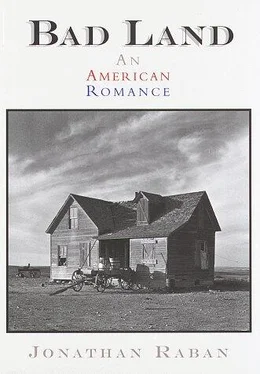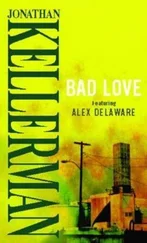Despite all the reassurances in the pamphlets, Norris had certain fixed ideas about the West. Stories of claim jumpers, fence wars and Indian raids had made him decide to take no chances. In Chicago, guided by a helpful salesman who knew all about the hazards of Montana, Norris selected the.43 Caliber “Egyptian” rifle as the ideal homesteader’s weapon. He bought seven of them, together with two cases of ammunition, and this arsenal occupied most of the bunk, leaving Norris a shelf just wide enough for him to lie on his side, his bent knees poking through the curtains.
The passengers with the least luggage were single men, Americans, for whom a bedroll and a spare checkered shirt were sufficient equipment for what they had in mind. The provisions of the new government homestead act were interestingly elastic. It should not take too much effort to turn free land into free money. The legal requirement of cultivation could be easily met: as the saying went, all you had to do was drag a turkey’s foot across the place. You could prove up your claim and sell the land as soon as you got title; but the smart dodge would be to use the land as surety at the bank, raise a loan for farm equipment, and light out with the cash.
Several of the men had come with sisters and girlfriends, for single women could file claims. Some had come in a consortium, got together at the local bar. They viewed the bona fide homesteaders as comic rubes. They would not dream of living in the godforsaken holes that were framed by the windows of the train. Once they’d gotten through the paperwork on their claims, they’d be back in the city within the week. For now, they smoked, joked, sucked at beers and mimicked the accents of the settlers.
The train ground to a halt at Baker, and to many of the passengers it seemed that it might never move again. Occasionally there would be a mild jolt as an emigrant car was uncoupled from the train’s rear end. Twice, a sweaty official in the braided livery of the railroad company walked the length of the train calling “Baker for Cabin Creek! Baker for Cabin Creek!” The new lake, which came to within a block’s length of the line, had been intensively homesteaded by mosquitoes, who laid into the emigrants as into a free church supper. The arrival of the train had drawn a jostle of horse-drawn wagons and a few dusty automobiles, but this traffic faded from the streets while the train remained at a standstill.
In one of the coaches, sitting alone above a spreading pool of tobacco juice on the floor, was Worsell. In the informal society of the prairie, where everyone was on first-name terms with everyone one else, Worsell would always be remembered only as Worsell, or Mr. Worsell, or That Englishman. He was not a man who inspired much affection in others.
Worsell was a Londoner and, at thirty-four, an old soldier. He’d been invalided out of the South African War because of his leg, and had blued his discharge pay on a ticket to America, the land of big helpings and easy pickings. He’d had no luck in New York, and, following the talk in the hostel where he’d put up, had made his way northwest to Minneapolis. He’d tried his hand at a number of things — had worked in a hardware store, taken a job in the housepainting business and hauled logs with a timber outfit in northern Minnesota.
In Minneapolis he met a Swedish girl who had recently arrived with her family in America; in the company of Kirsten Torup, Worsell had never felt so positively talented. His fluent English made him the custodian of all things American. In restaurants and on streetcars, he was almost dashing. He became a welcome guest in the tenement building where the Torups had an apartment. He corrected everyone’s pronunciation. He grew a mustache and bought a phonograph.
Worsell and Kirsten married when Kirsten found she was pregnant, and their son, Arthur, was born late in the year in 1902. Worsell was tickled pink with his boy, though much of the time he was away at the logging camp, mailing money back to Kirsten in Minneapolis.
When Arthur was four, Kirsten died of the flu, and Worsell’s world, never robust, went to pieces. Utterly unequipped for single parenthood, he farmed the child out with his wife’s relations. Up at the camp he moped and drank alone. He paid irregular visits to Arthur; strained occasions on which he was usually slightly drunk.
In 1909, he was following the drift of the talk in the bars in Minneapolis, just as earlier he had followed the drift of the talk in the New York hostel. He had no time for reading. Free land was free land, and Worsell wanted a piece of it for himself.
After a long while, the locomotive began to sigh and throw off gouts of bitter steam. Its whistle sounded — a flat complaining oboe note — and the train crawled out of Baker into the last of the sunset. The dying light gave the miles of new barbed wire fencing a surreal brilliance. The prairie here was dotted about with small, imperfect rectangles of plowed ground, and even this late in the evening, people and horses were still abroad, cutting new fields out of the yellow grassland. There were tents, some glowing faintly from the light of kerosene lanterns, a few makeshift cabins, the skeletal frames of partially constructed barns. By the time the call came for Plevna, it was pitch dark. All one could see was the occasional grotesque shadow show on the screen of a tent roof.
Across the gangway from Worsell, a woman was feeding her family catsup sandwiches — thin slices of bread smeared with tomato ketchup. She offered one to Worsell. He wasn’t hungry, but nor was he in the habit of passing up a free offer. The scrape of ketchup was so faint as barely to color the bread without moistening it or adding any perceptible flavor, but Worsell ate it anyway. Food was food, and you eat what you can get was Worsell’s motto.
He wasn’t someone to whom mental associations came easily — and when they did, they were almost invariably unwelcome. So he was surprised to find himself dwelling on the landscape of the past hour or two and being rather pleased by the echoes it aroused in his mind. It had been a long time since he’d seen so much barbed wire, so many tents, such a boundless sweep of dry grass. It was like the veldt. It was across a terrain exactly like this that the British army had driven the Boers into funnel-shaped traps of barbed wire that the young Worsell had helped to unroll from the drums. Jacobsdal … Petrusburg … De Brug … Tins of bully beef and field canteens of strong, sweet tea … Musing amiably on the tricky ways of the wire and its twisted four-point barbs, Worsell watched his reflection in the dark window glass.
Nearly forty hours after leaving Chicago, the train arrived in Ismay, where a crowd of husbands had been waiting for it since early afternoon, a good number of them in Nigger Bob’s saloon. (Bob Levitt was not black; he was a white ex-cowboy from the XIT ranch in Texas.) The dazed and travel-stained emigrants lifted their bags and boxes down on to the track. They had been expecting a city, with street lamps, signs, illuminated storefronts. They stood under a clear night sky, looking in perplexity at a bare scatter of buildings, their blocky shapes silvered by storlight. Ismay might as well have been Haynes, or Reeder, or McLaughlin.
Many spent their first night in Montana at the Milwaukee Hotel, a honeycomb of bare closet-sized rooms, each just large enough to hold a bed, an upright chair and a nightstand with a water pitcher atop and a chamber pot below. The curtains of the rooms were thin enough to see the stars through them and they stirred and shivered in the drafts that wormed their way through the poorly carpentered frames. Some of the emigrants heard for the first time the intense contralto sobbing of the coyotes, and wondered apprehensively if they were wolves. Some, too tired, expectant and keyed-up to face their cell-like sleeping quarters, sat up in the lobby, smoking and turning the pages of back numbers of the local newspaper. On the front page of one issue of the Ismay was a poem:
Читать дальше












